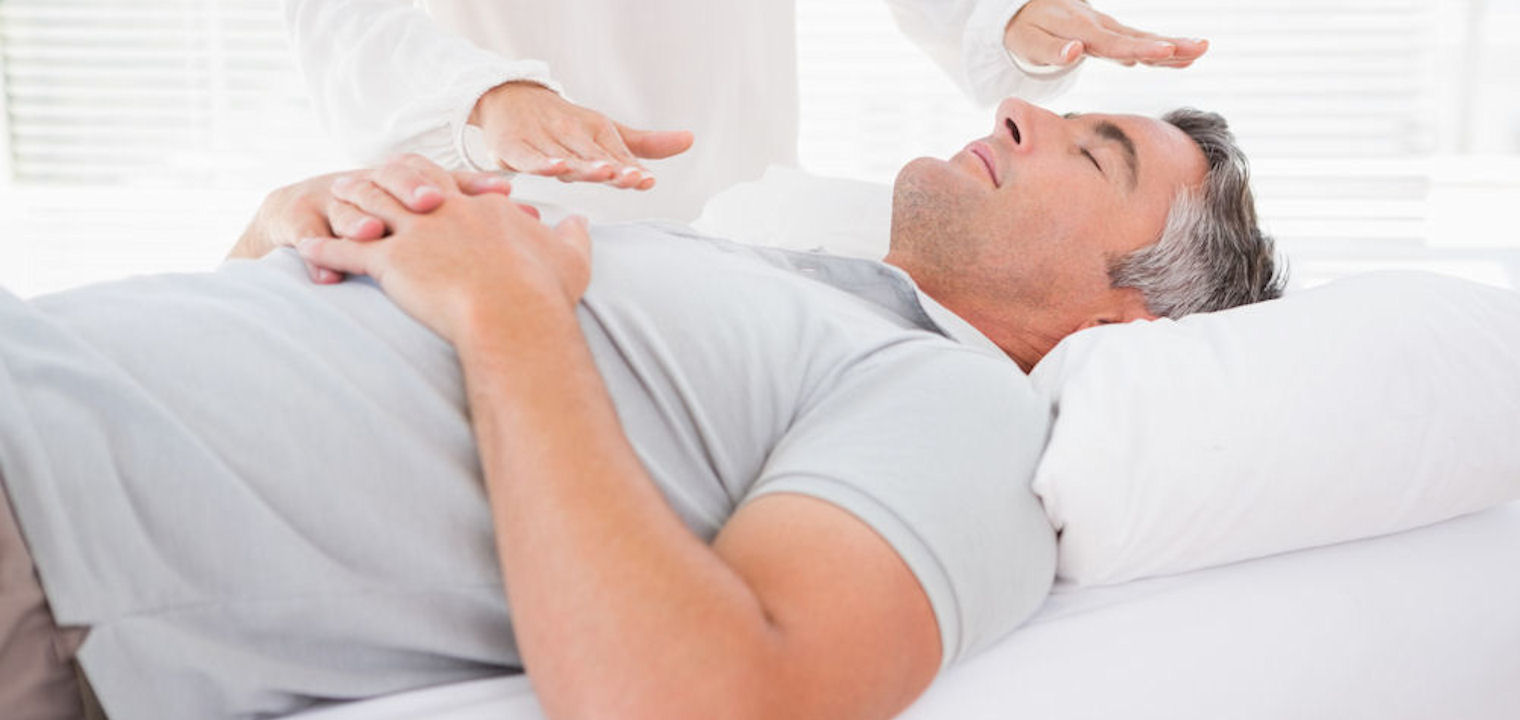Reiki for Addiction: The Benefits
Have you ever considered alternative addiction therapies to support your recovery journey? Reiki is an ancient Japanese healing technique that uses gentle hand placement to balance energy flow and restore well-being. While Reiki may seem unfamiliar, it has many benefits for addiction recovery. This holistic practice activates your body’s natural healing abilities and enhances your mind-body connection.
The mindfulness aspects of Reiki influence your brain’s functioning in ways that boost health and happiness. Reiki’s benefits extend beyond the physical to positively impact your mental, emotional, and spiritual well-being.
For those struggling with addiction, Eagle Creek Ranch Recovery in Nampa, Idaho offers holistic therapy methods such as Reiki to help people in recovery develop self-awareness, relieve stress, and find inner peace.

Reiki is a form of alternative therapy focused on the mind-body connection. It’s based on the idea that life energy flows through us and is what causes us to be alive. If one’s “life energy” is low, then we are more likely to get sick or feel stressed. Reiki aims to improve health and wellness by restoring balance and flow to a person’s life energy.
The practice of Reiki involves a practitioner placing their hands on or near a person’s body to transfer healing energy. The belief is that this energy can help to remove blockages and promote a state of balance and well-being. Reiki is often used as a complementary therapy to support conventional medical treatments, and it is sometimes used for stress reduction and relaxation.
It’s always advisable to consult with qualified healthcare professionals for any health-related concerns and to view practices like Reiki as complementary rather than an alternative to conventional medical care.
What are the Types of Reiki?
Reiki uses gentle touch to balance your body’s energy and promote healing. There are several types of Reiki, each with its unique benefits for recovery.
Usui Reiki is the most common form. It uses a light, hands-on touch to open up energy flow through your body. By balancing your energy, Usui Reiki reduces cravings and stress, calms the mind, and fosters peace – all of which help in overcoming addiction.
Karuna Reiki focuses on releasing negative feelings and energy blocks from your system. It clears addiction-related emotions like guilt, shame, and self-loathing. By letting go of these toxic energies, Karuna Reiki paves the way for self-forgiveness and healing.
Seichim Reiki activates your higher consciousness through harmonic sounds and symbols. It expands your mind-body connection, enhances intuition, and unlocks your inner wisdom. With greater self-awareness and spiritual connection, the grip of addiction loosens as you access your strength and purpose.
Tibetan Reiki is a form of Reiki that blends traditional Usui Reiki with elements of Tibetan Buddhism. It often involves the use of Tibetan symbols and mantras in addition to the traditional Reiki symbols.
Kundalini Reiki aims to awaken dormant Kundalini energy, channeling it through the body’s chakras. Believed to enhance spiritual awareness and emotional balance, Kundalini Reiki is thought to contribute to overall well-being and support recovery from challenges such as addiction.
Contact Eagle Creek Ranch
Recovery Today!
Why Wait? Find The Help You Need By Reaching Out To Us Today! Our Admissions Team Is Standing By.
What are the Benefits of Reiki Therapy?
Reiki therapy provides many benefits for overall health and wellness. As an alternative healing practice, Reiki can enhance your recovery in several ways:
Reiki is deeply relaxing and helps calm the mind and body. This can help lower stress and anxiety, which are common triggers for addiction and relapse. Reiki’s calming effects may help you better cope with cravings and difficult emotions.
Reiki can help reduce both acute and chronic pain. As an alternative to prescription painkillers, Reiki provides natural pain relief without side effects. This may help you avoid addictive pain medications during recovery.
Reiki stimulates your body’s energy centers and flows, called chakras and meridians. This enhances your mind-body connection and self-awareness. With regular practice, you can gain insight into the underlying causes of your addiction and self-destructive behaviors. This awareness is essential for long-term sobriety.
Reiki promotes balance and harmony in mind and body. This can inspire you to make positive lifestyle changes to support your recovery, like eating healthier, exercising, reducing stress, and avoiding triggers. Healthy habits and self-care in recovery are key to overcoming addiction.
Addiction is often linked to past trauma, emotional pain, and negative thoughts. Reiki helps release blocked energy, clears the mind, and balances emotions. This may help address the root causes of your addiction and support emotional healing. Letting go of past hurts and negative self-beliefs is important for recovery.
Trying Reiki can help strengthen your spiritual connection, which is especially good for those dealing with addiction. Addiction can make people feel lost or disconnected. In a Reiki session, you’ll feel calm and positive, giving you the power to connect with your spiritual side in your way. With support and guidance, Reiki can motivate and empower you to stay committed to your recovery journey.
How can Reiki Therapy Help Patients Manage Withdrawal Symptoms?
Reiki therapy is believed by some practitioners to offer valuable support for individuals navigating withdrawal symptoms, which are a natural part of the detoxification process. As a calming treatment, Reiki may provide relief from the physical discomfort that is frequently associated with withdrawal.
In the early stages of recovery, individuals struggling with addiction may have trust issues and be skeptical of alternative medicine approaches. However, Reiki therapy has the potential to alleviate heightened emotional states caused by withdrawal, fostering a sense of calm, safety, and inner peace. As a person undergoing this type of treatment achieves a state of physical and mental tranquility, they are more likely to release the panic and trauma associated with the detoxification experience.
What are the Considerations for Using Reiki for Addiction Recovery?
Using Reiki for addiction recovery can be very beneficial, but there are a few things you should consider first.
The cost of a Reiki treatment can vary greatly depending on where you live and the experience and level of the practitioner. Some offer sliding-scale fees or lower rates for those in recovery. Look for practitioners in your area and compare rates to find one that fits your budget. Reiki can also be learned as a form of self-practice that provides free treatment.
Reiki should be used to complement traditional addiction treatment, not replace it. Work closely with your doctors, therapists, and support groups to develop a comprehensive recovery plan. Reiki can help reduce withdrawal symptoms and cravings while calming the mind and body, but it should be combined with counseling, medications if needed, and lifestyle changes.
Do some research to find a Reiki practitioner who has experience helping those with substance abuse issues. They should be licensed or certified in your state and have addiction/recovery training. Meet with a few practitioners to find one you trust and feel comfortable opening up to about your addiction and experiences. The practitioner-client restraint is important for effective treatment.
While Reiki can be very helpful for recovery, it typically requires multiple treatments to experience its full benefits. Don’t go into your upcoming Reiki session expecting an immediate cure. Recovery is a lifelong journey, and Reiki should be used as a tool to support your sobriety and personal growth over the long term. Be patient and stick with it.
Learning Reiki to treat yourself in between sessions can help you stay focused on your recovery. A self-reminder routine helps reduce anxiety, erases negative moods, and promotes mindfulness. Work with your practitioner to develop a simile self-treatment plan you can practice at home. Reiki also teaches life skills like discipline, responsibility, and self-care that will aid you in your recovery.
Overall, Reiki therapy offers many benefits for addiction recovery by reducing stress, easing cravings, promoting self-awareness, and promoting emotional healing. When combined with traditional treatment, Reiki can enhance your recovery journey and help you maintain long-term sobriety. Discuss adding Reiki or other alternative practices (such as acupuncture) with your doctor or recovery program.
Breaking the Cycle of Addiction With Reiki at Eagle Creek

Eagle Creek offers a transformative approach to breaking the cycle of addiction through the integration of Reiki therapy. Recognizing the challenges individuals face during the recovery process, our program leverages the calming and balancing effects of Reiki to provide support during detoxification and withdrawal. Reiki’s ability to alleviate physical discomfort and ease emotional distress is particularly valuable in the early stages of recovery, when trust and openness to alternative treatments may be limited.
Our professional practitioners at Eagle Creek guide individuals through Reiki sessions, creating an environment where they can experience a sense of calm, safety, and inner peace. By incorporating Reiki into our comprehensive treatment plan, we aim to help individuals break free from the grip of addiction, fostering a holistic journey toward lasting recovery. Contact us today!

Clinical Director
Kendall Maloof is the clinical director at Eagle Creek Ranch Recovery. She is a licensed marriage and family therapist and has held multiple leadership roles before settling here at Eagle Creek. Kendall received her master’s degree in marriage and family therapy from the Chicago School of Professional Psychology in 2016. Her career in mental and behavioral health began in 2014 when she took up internships in both the nonprofit and for profit sectors. She interned at multiple reputable companies, such as The Living Success Center and 449 Recovery in California.
In 2019, Kendall became the clinical director of Sunsets Recovery for Woman, a dual diagnosis program in southern California. Kendall is a natural leader. She has an incredible ability to problem solve and stay calm in any situation. Kendall never fails to show up when she is needed, and her calm demeanor makes her team and clients feel at ease. Eagle Creek Ranch Recovery is proud to have Kendall as our clinical director.


